MARCH 7, 1971: The thunder roars
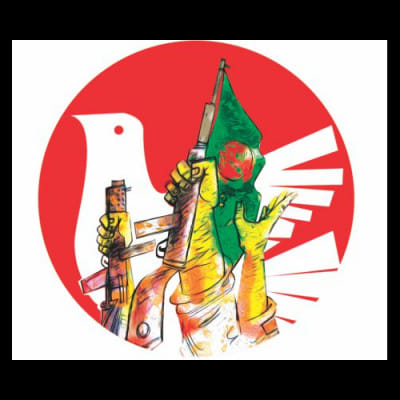
The stage was set, the podium standing tall and ready and the microphones were switched on, waiting to echo the strong voice of the leader to deliver what would become the most powerful speech in the country's history. The people of the then East Pakistan, his people, were waiting on their toes for the much-anticipated words.
And then he came.
He was clad in a white punjabi and pyjama with the iconic sleeveless black coat. Around 3:15pm, he approached the podium.
“Joy Bangla!”
The confluence of people greeted him with the slogan.
"Today, I appear before you with a heavy heart. You know and understand everything. We tried with our lives. But the painful matter is that today, in Dhaka, Chittagong, Khulna, Rajshahi and Rangpur, the streets are dyed red with the blood of our brethren. Today the people of Bangla want freedom, the people of Bangla want to live, the people of Bangla want their rights," Bangabandhu Sheikh Mujibur Rahman said, his words ringing.
The undisputed leader of the Bangalees, Sheikh Mujib, at the mammoth rally at the Race Course ground on March 7, 1971, called on the freedom-loving Bangalees to fight back against the oppressive Pakistani regime.
In this historic speech, he mentioned the four conditions under which he and the Awami League would attend the National Assembly meeting to be held on March 25 -- the immediate lifting of martial law, the immediate withdrawal of all military personnel to their barracks, the immediate transfer of power to elected representatives of the people, and a proper inquiry into the loss of life during the conflict.
He also gave several directives for a civil disobedience movement -- people should not pay taxes; government servants should take orders only from him; the secretariat, government and semi-government offices and courts in East Pakistan should observe strikes; with necessary exemptions announced from time to time, only local and inter-district telephone lines should function; railways and ports could continue to function, but their workers should not co-operate if they were used to repress the people of East Pakistan.
The speech, now included in Unesco's Memory of the World Register as a “documentary heritage”, encompassed the history of Pakistan preceding the last 23 years.
Bangabandhu spoke in great detail about the many ways in which the people had been denied their political and economic rights by successive Pakistan governments. His tale of exploitation resonated across the thronging crowd. They felt every word on their skins, in their blood.
"If a single bullet is fired upon us henceforth, if the murder of my people does not cease, I call upon you to turn every home into a fortress against their onslaught. Use whatever you can put your hands on to confront this enemy. And for the sake of life, even if I am not around to guide or direct you continue your movement in a ceaseless manner.”
And then in a roaring voice he uttered the words that defined the road to the future:
"Since we have given blood, we will give more of it. Insha'Allah, we will free the people of this land.
“The struggle this time is for emancipation. The struggle this time is for independence.
“Joy Bangla!"
This defining moment touched the hearts of every Bangalee across the then East Pakistan, now Bangladesh. It mobilised the whole nation, excepting a few pro-Pakistani elements, to prepare for the ultimate sacrifice.
His words became every Bangalee's strength with which they boldly put their lives on the line for the freedom of this nation.
This very speech had set the tone for the Liberation War that would officially begin on March 26, 1971. And this very speech would become the ballad for freedom.

 For all latest news, follow The Daily Star's Google News channel.
For all latest news, follow The Daily Star's Google News channel. 

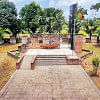

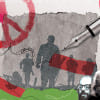
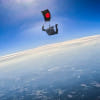
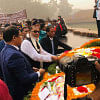


Comments